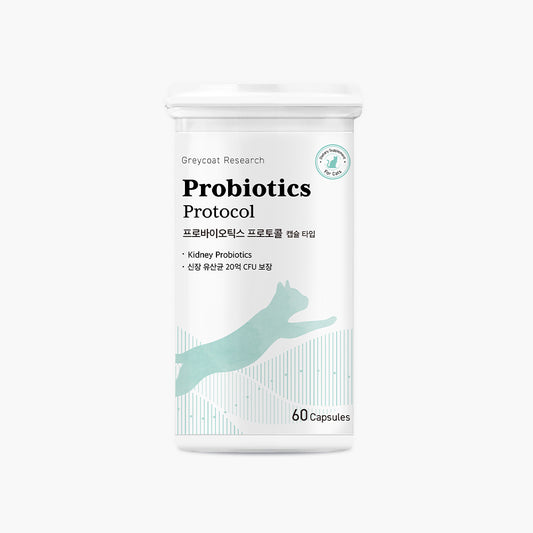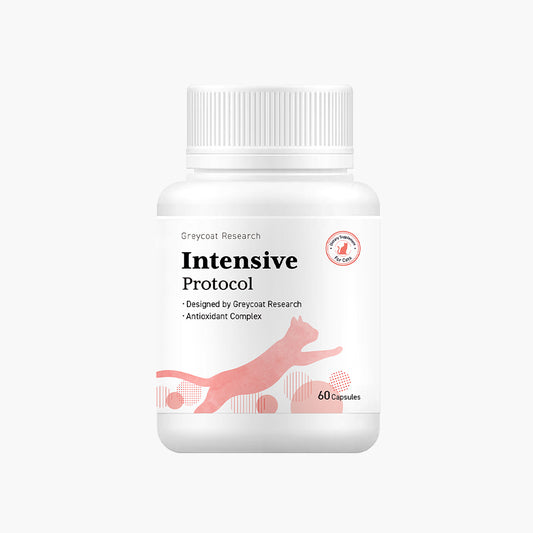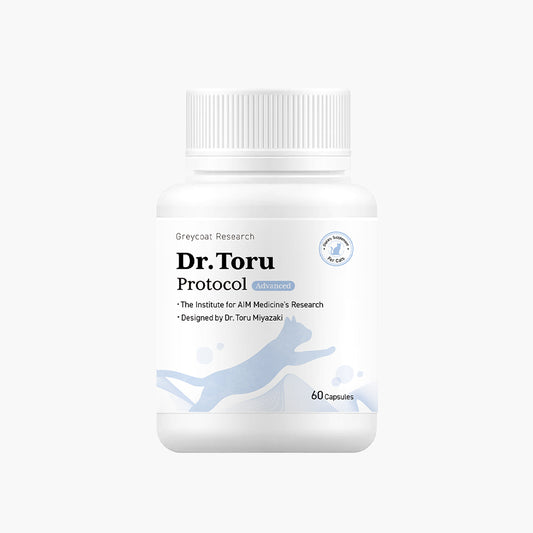That Smell Isn’t Just Bad Breath — It Could Be Kidney Disease

What seems like a minor case of bad breath in cats can actually be a warning sign of something much more serious—kidney disease. This isn’t just about dental hygiene. It may indicate that a cat's kidneys are no longer functioning properly.
Let’s break down why bad breath in cats deserves immediate attention.
Real Experts, Real Results: Kidney Care Backed by Greycoat Research
- Over 1,000 consultations for cats with stage 2 and 3 chronic kidney disease
- Joint supplement development with Dr. Toru Miyazaki, Institute for AIM Medicine
- Insights from Dr. Kim Jae-young, who cared for Minky, Korea’s oldest cat (28 years)
- Practical care guidance from Dr. Motoo Kobayashi, a leading feline kidney care veterinarian
Smells Like Ammonia? That’s a Red Flag

A cat's kidneys are supposed to remove waste products from the blood. But when kidney function declines, these waste products stay in the body—eventually showing up in a cat's breath.
Common Features of Bad Breath:
- Strong urine-like or ammonia smell
- Persistent metallic or sharp chemical scent
- Rotten or foul odor in advanced stages of kidney disease
How Kidney Issues Cause Bad Breath:
- Declining kidneys are unable to effectively remove creatinine and BUN
- These waste products build up in the blood
- These waste products are released through the oral mucosa, producing a foul odor
- As kidney function deteriorates, waste buildup increases
- This causes the smell to grow worse
As kidney disease progresses in cats, their breath odor tends to worsen. This happens because waste that should be filtered out by the kidneys instead builds up in the body and is partially released through the saliva and oral tissues. In late-stage kidney disease, the smell can become especially strong and unpleasant—making it one of the more noticeable symptoms of the disease for owners.
If a cat’s breath consistently smells abnormal, it’s important not to dismiss it as a simple dental issue. A kidney test may be necessary to understand what’s really going on.
Stomatitis and Kidney Disease: A Dangerous Connection

Bad breath can also come from oral diseases like stomatitis (severe gum inflammation). Stomatitis and kidney disease can make each other worse—creating a dangerous cycle for a cat’s overall health.
Kidney disease lowers a cat’s immunity, which worsens oral inflammation. Chronic oral inflammation then sends more stress signals through the bloodstream—speeding up kidney damage.
The Vicious Cycle of Oral Health and Kidney Disease:
- Kidney disease → weak immune system → stomatitis
- Stomatitis worsens → chronic inflammation → kidney disease worsens
Left untreated, this combination raises inflammatory markers and pushes a cat's kidney values higher.
Don’t Ignore These Warning Signs

If bad breath is paired with the symptoms below, it could mean a cat's kidney function is already compromised:
- Drinking too much or too little (frequent urination can lead to dehydration)
- Weight loss and reduced appetite (worsened if stomatitis is present)
- Lethargy or low activity (due to rising creatinine and BUN levels)
- Frequent vomiting (from gastrointestinal distress caused by toxins)
These aren’t quirks in behavior—they’re warning signs. And they usually show up in cats when kidney disease is already progressing.
Support the Mouth, Protect the Kidneys

Managing stomatitis on top of kidney disease in a cat can be a challenge task. Certain supplements can help cats on both fronts.
- Antioxidants: Reduces inflammation and support tissue recovery
- AIM-based Supplements: Aids in removing kidney waste and suppresses kidney inflammation
- Omega-3: Soothes and protects oral tissue with anti-inflammatory support
- Immune Support: Ingredients like propolis, beta-glucan, fucoidan help modulate immune response
For both stomatitis and kidney disease, early supplementation is key. These products may reduce the burden on the kidneys and ease oral inflammation in cats. However, in severe cases, dental procedures like extractions may still be required for cats.
Early Action Is Everything
Up to 40% of cats will develop kidney disease during their lives. And once it starts, it won't go away. But with early intervention and proper care, the disease's progression can be slowed and the cat's quality of life preserved.
- Regular bloodwork is essential to monitor a cat's kidney health.
- Dietary management and targeted supplements are key for cats with kidney disease.
Greycoat Research offers tailored care solutions for cats with kidney disease. Backed by over 1,000 cases, our expert-developed approach helps catch and manage problems in cats early—before they spiral out of control. Every small symptom matters—early detection and intervention can make all the difference.
If you suspect your cat has kidney issues, contact Greycoat Research for a free consultation today.



